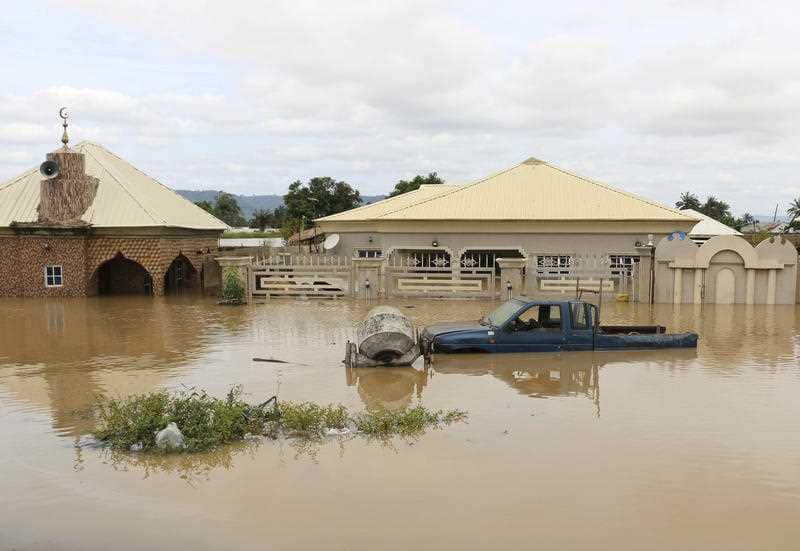Severe flooding has killed almost 200 people in Nigeria, including a nine-year-old girl.
Flooding is not uncommon during Nigeria's rainy season, which usually takes place between June and September, but the loss of life and damage of this year's floods is unusual.
Heavy rains since August have affected almost 830,000 people in ten of the West African nation's 36 states, the National Emergency Management Agency said in a statement posted on Twitter.
Thousands of homes and 150,000 hectares of farmland have been destroyed, while 321 roads and bridges were wrecked or damaged.
CNN has reported Bernadette Uzo, 9, was swept away by flash floods. Emergency services put the death toll at almost 200 but are still working with community heads and local first responders and expect the toll to rise.
"In some communities, people are trapped and we are trying to make arrangements to evacuate them," Nigeria's National Emergency Management Agency 's incident coordinator Brandon Walson told local media.

Source: AAP
The four worst-affected states - Anambra, Detla, Kogi and Niger - have been declared national disaster zones.
Despite its rich oil resources, Nigeria, with its almost 200 million people, is among the 30 poorest countries in the world, the UN has said.
The risk of flooding is increased due to the country's poor infrastructure across its dams and sewerage systems.
Nigeria, home to West Africa's biggest rivers - the Niger and the Benue - has repeatedly been wracked by deadly flooding, including last year which saw 250,000 people displaced.
In 2012 devastating flooding killed 363 and displaced more than two million Nigerians. Flooding that year saw the Niger River reached a record-high level of 12.84m.
Authorities believe increased rainfall and damming, along with infrastructure failing to keep up with a population boom contribute to the repeat flooding.
Share

